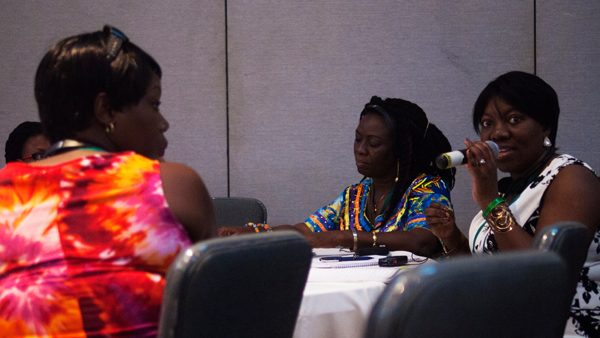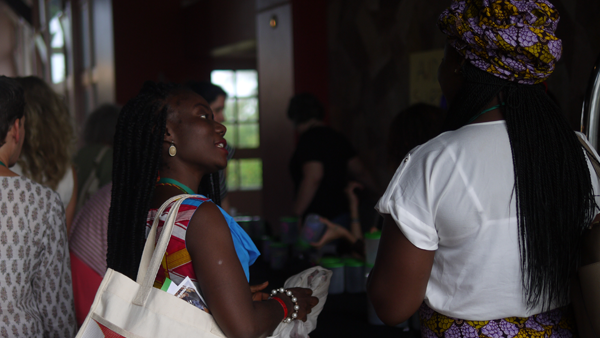Full of energy and motivation, young African feminists fight for their rights.
During the Association for Women’s Rights in Development (AWID) Forum, held in Brazil from September 8-11, they brought the challenges they face and let themselves be heard.
The war is tough, the field is mined, the enemy ever-changing.
But young African feminists are not fazed: they have founded organizations or movements that - sometimes collectively - advocate for women’s rights. During the Association for Women’s Rights in Development (AWID) Forum, which took place in Bahia, Brazil, from September 8-11, activists brought up taboos about sexuality, the sanctity of virginity, the stigmatization associated with using contraception, and the struggles of transgender people.

But among speakers and audience members, many dwelled on the issue of female genital mutilation (FGM), which impacts sexuality and can leave a person sterile or create complications during childbirth. With anger in her voice, Gambian activist Mariatou Newlands from Think Young Women told the story of how her cousin “had to circumcise her daughter to save her marriage.” Proof that, despite awareness campaigns, social pressure remains strong. And not just among the elderly.
From the audience, a young feminist put forth that the anti-FGM discourse “was becoming a new form of colonialism” aimed at demonstrating that “Africans are backward,” adding,
“What is the point of fighting as African feminists if we allow ourselves to be dominated by supremacist values?”
You could read the shock across faces in the room.
But this discourse is nothing new: African intellectuals and senior officials – men and women – speak this way in the name of identity. Reacting strongly, a Mauritanian woman asked: “How do we mobilize so that there are no more mutilations, circumcisions in my country?” In Mariatou’s opinion, we need to avoid imitation. “It’s important to identify what works best in the country we are in. We focus on youth, young women, future mothers.”
We also engage village chiefs, religious leaders, teachers, medical personnel.

Still, in general, defending women’s rights requires tenacity.
It often means imposing ourselves in patriarchal societies, and being heard by elders who sometimes give little credit to young people. Mission impossible? Not according to Kakana Kanyanta, human rights activist in Zambia:
“It requires constant education and awareness building. If we reach two of ten people, as a force we can change something in society…what we need is solidarity and to work together, without leaving anyone behind.”
The goal: total victory.
And to achieve it, “we can’t talk about the end of bad practices without talking about the right to reproductive health, to education, to access to information, to autonomy…it’s a complete package,” underscored activist Lana Razafimanantsoa, founder and executive director of Gasy Youth Up, based in Madagascar. “It takes courage,” said Mariatou, but there “is nothing wrong in reclaiming your rights.”
On all fronts: on the ground but also online, where new forms of violence against women are coming to life, like misappropriating pictures to tarnish a victim’s image.
Meanwhile, according to a Chadian, advocating for the whole “package” is sometimes “scary” to different actors. She suggests a gradual approach: “We should emphasize to women that even the smallest victory counts, that small changes can bring big changes.” Another participant from Ghana, reminded the group that in terms of reproductive health, it is essential to consider the precariousness for certain groups with target populations.
“If you are talking about family planning methods and they don’t have money to buy contraception, for example, then you are preaching in the wilderness…”
About the author
Habibou Bangré is a French freelance journalist who has been working in the Democratic Republic of Congo for five years. She writes mostly about politics, insecurity, human rights, justice, and social and gender issues.
